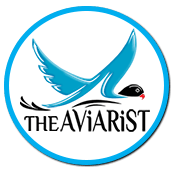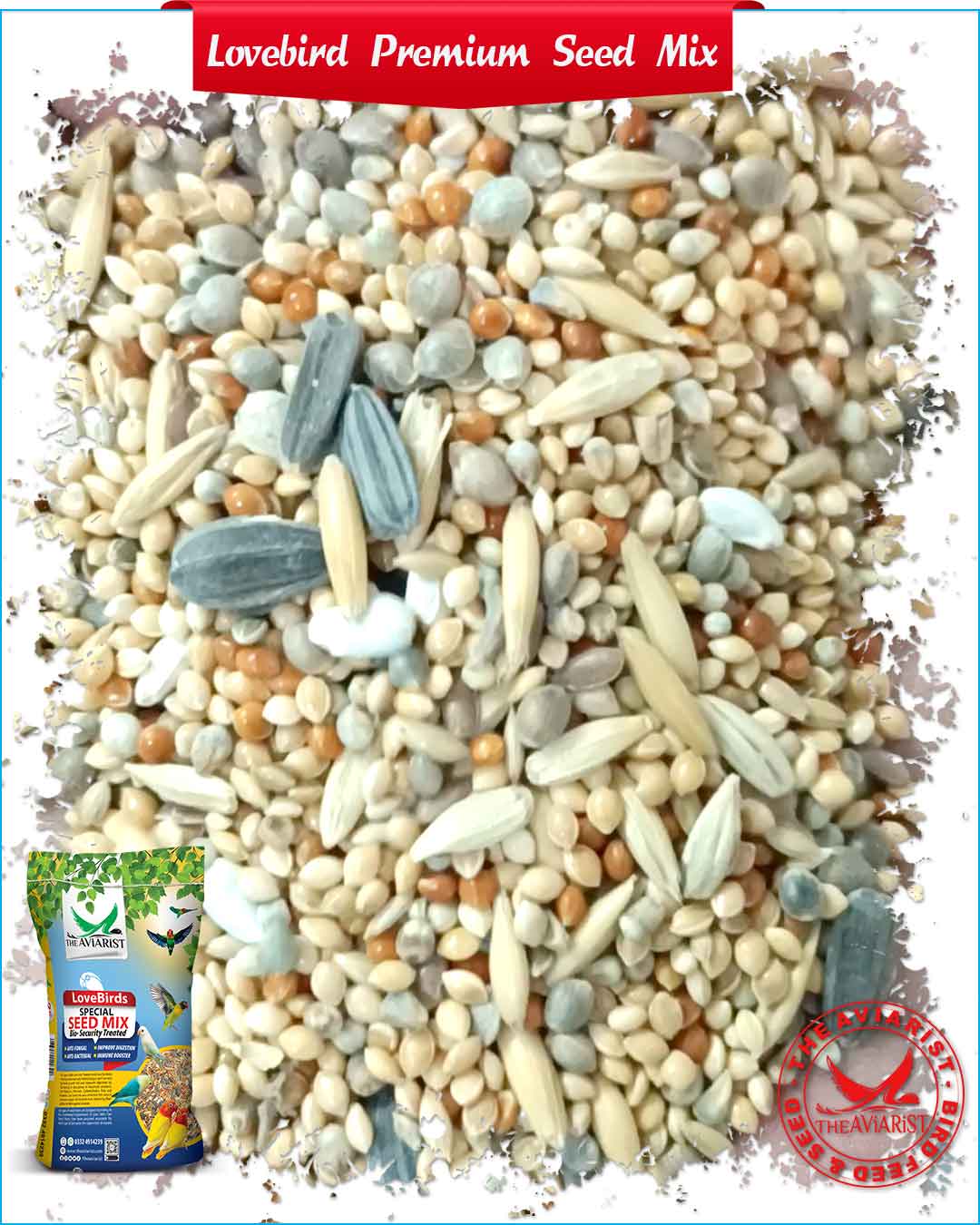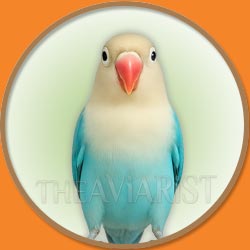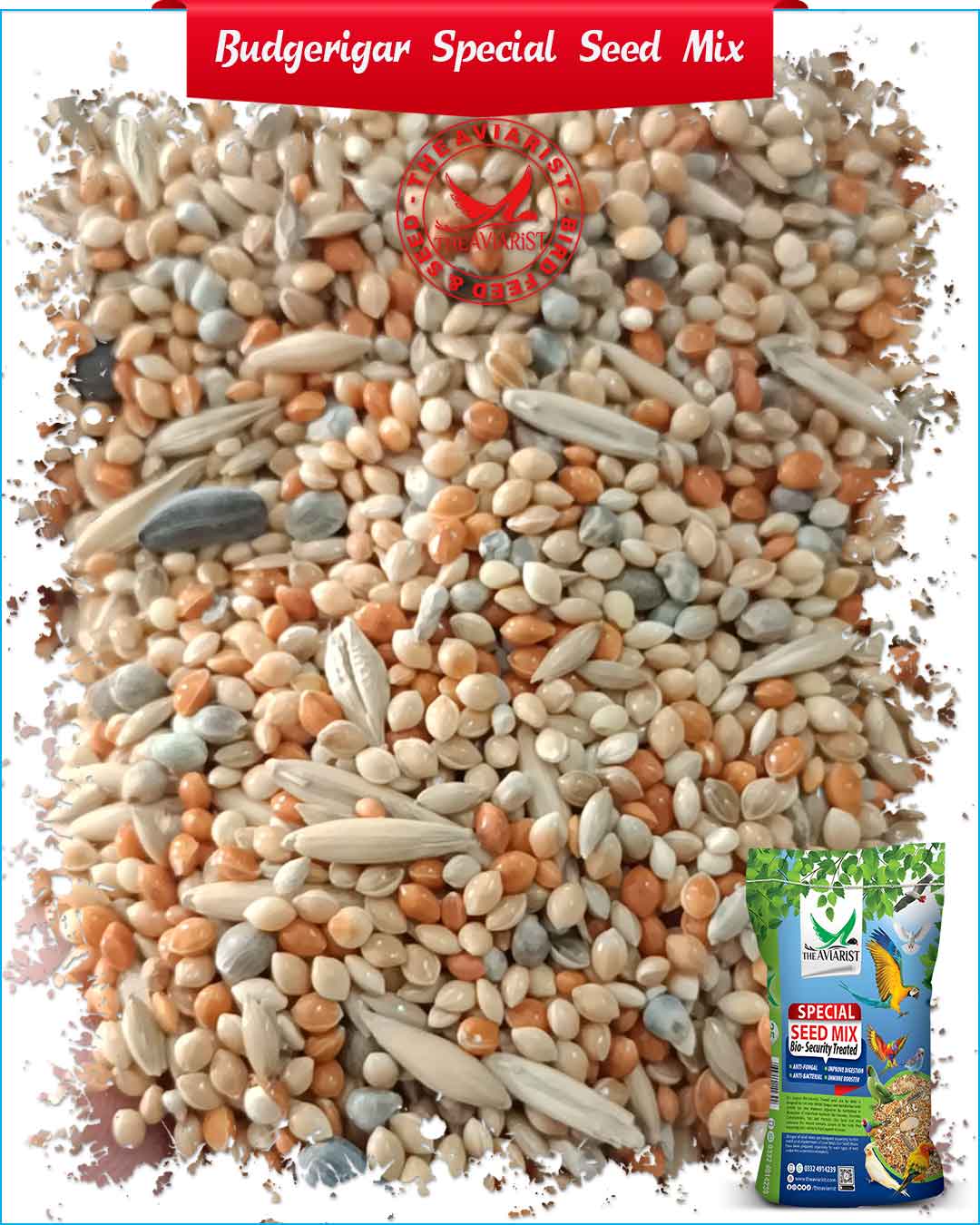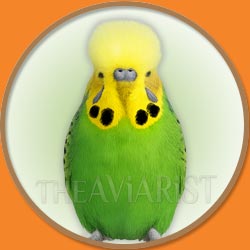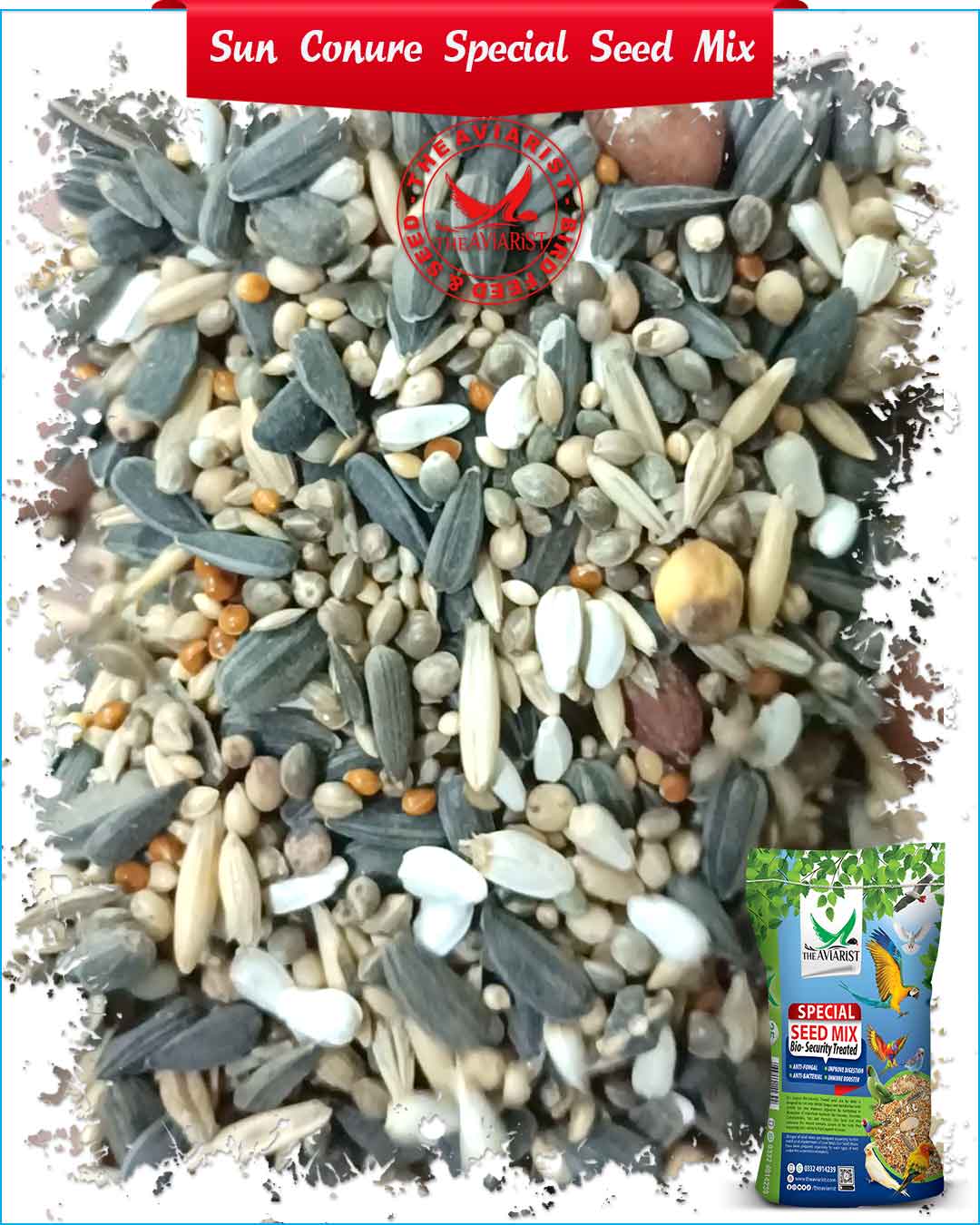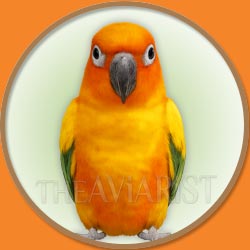Diamond Dove

The Diamond Dove (Geopelia cuneata) is one of the smallest and most charming dove species, admired worldwide for its delicate beauty and gentle nature. Native to the dry grasslands and open woodlands of Australia, this species is easily recognized by its fine gray plumage adorned with distinctive white “diamond-like” spots on the wings, which give the bird its elegant name. Their striking red or orange eye-ring adds further appeal to their graceful appearance.
Diamond Doves are peaceful, quiet, and affectionate birds, making them ideal companions for aviaries and households alike. Unlike larger doves, their soft, pleasant cooing is calming rather than loud, which adds to their popularity. They are highly social, preferring the company of a mate, and are known for forming strong pair bonds. With their charming behavior, gentle temperament, and modest care requirements, Diamond Doves hold a special place in the hearts of bird enthusiasts around the world.
A Complete Nutrition
At The Aviarist, we understand that the health, vitality, and breeding success of Diamond Doves depend largely on their diet. Our specially formulated Seed Mix for Diamond Doves is bio-security treated, ensures that Diamond Doves receive safe, clean, and nutrient-rich food that supports their feather health, energy levels, fertility, and overall wellbeing.
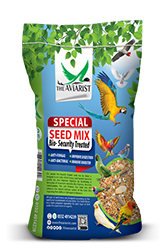
Special Seed Mix
Unlike ordinary seed mixes, our formula goes beyond just filling the seed cup. Every batch is carefully treated and enhanced to support the overall well-being, breeding performance, and immunity of your Finches.
The Special Seed Mix is our core variant, trusted by many breeders. What makes it unique is that, it is regularly adjusted and upgraded according to seasonal changes and breeding requirements.
Tailored nutrition for breeder pairs
Adjusted fat and protein ratios for better breeding outcomes
Ensures strong fertility, better hatch rates, and healthier chicks
This mix is especially beneficial during pre-breeding and general breeding periods.


Key Ingredients:
| Ingredient | اجزاء |
| PROSO MILLET | سفید چینا |
| RED PROSO MILLET | لال چینا |
| HEMP SEED | بھنگ کے بیج |
| FOXTAIL MILLET | گول کنگنی |
| WHITE MILLET | دیسی کنگنی |
| RED MILLET | لال کنگنی |
| SMALL PEARL MILLET | باجری |
| WHEAT PORIDGE | گندم کا دلیہ |
Price Rs.240/Kg
Available in 10Kg & 25Kg Packing
Key Features
1. Bio-Security Treated Seeds
Every seed in our mix undergoes a strict bio-security process. This includes anti-fungal treatment that prevents the growth of harmful fungi such as Aspergillus, which can cause serious respiratory infections in birds. Additionally, the mix is treated to eliminate bad bacteria that often grow in untreated seeds and may lead to digestive or immune-related health problems.
2. Enhanced Digestion
Birds have a delicate digestive system that can sometimes struggle with raw seeds when kept in controled environment. To address this, our seed mix is enriched with special enzymes that aid in the breakdown and absorption of nutrients. These enzymes improve gut health, reduce digestive stress, and maximize nutrient utilization, ensuring that birds get the most from every seed they consume.
3. Immunity-Boosting Formula
A strong immune system is essential for protecting birds against common infections. Our blend is fortified with immunity-enhancing agents that help strengthen their natural defenses. This means your birds are better equipped to fight off seasonal illnesses, bacterial challenges, and environmental stressors.
4. Species-Specific Nutrition
Unlike generic bird seed blends, The Aviarist seed mix is specially crafted for species specific, keeping their natural habitat and dietary patterns in mind. The selected seeds provide the right balance of proteins, healthy fats, vitamins, and minerals that match their natural dietary needs.
Benefits
Healthier Plumage & Brighter Colors
Proper nutrition enhances feather quality, resulting in shinier, stronger, and more vibrant plumage—a sign of a healthy bird.
Boosted Energy & Vitality
With a balanced nutritional profile, birds remain more active, playful, and energetic, reflecting their natural behavior.
Stronger Immunity Against Diseases
The immunity boosting shield protect birds from bacterial and viral threats.
Improved Digestion & Nutrient Absorption
The added enzymes prevent bloating, indigestion, and seed waste, ensuring maximum nutritional benefit.
Longevity & Quality of Life
A safe and nutrient-rich diet contributes to a longer, healthier, and happier life for birds.
Breeding Benefits
Bird breeding requires an optimal diet rich in energy, proteins, and essential micronutrients. The Aviarist Seed Mix is designed to support the breeding cycle in several ways:
Enhanced Fertility in Pairs
Nutrient-rich seeds, combined with immune-boosting agents, improve fertility rates and increase the chances of successful breeding.
Stronger Egg Production
The bio-secure and enzyme-treated formula ensures the hen’s body efficiently absorbs calcium and proteins, leading to stronger, healthier eggs with better hatchability.
Healthy Chick Growth
Parents fed on this seed mix pass on enhanced nutrition to their chicks, ensuring stronger immunity, better feather growth, and healthy development from the very first days.
Reduced Breeding Stress
With improved digestion and higher energy reserves, breeding pairs remain less stressed during mating and chick-rearing, resulting in more consistent breeding success.
Diamond Dove
The Gentle Jewel of the Aviary
The Diamond Doves are well adapted to dry environments and are often found near water sources in the wild. In aviculture, they are cherished as peaceful and elegant companions, ideal for both beginners and experienced bird keepers.
- Average length: 19–21 cm (7.5–8.5 inches)
- Wingspan: about 25–30 cm
- Weight: 30–40 grams
Despite their small body, their long tails give them an elegant look.
Appearance
True to their name, Diamond Doves are adorned with tiny white “diamond-like” spots across their wings, creating a sparkling effect. They have a slender body measuring about 7.5–9 inches in length, with a long tail and graceful posture. Their plumage is soft grey with lighter underparts, while their eyes are encircled by a striking orange-red eye ring, adding to their beauty.
Over time, selective breeding has produced several color mutations, including white, silver, cinnamon, pied, and fawn, each retaining the same gentle charm.
Personality and Behavior
Diamond Doves are gentle, calm, and non-aggressive birds, making them perfect for mixed aviaries. They are not noisy but produce soft, pleasant cooing sounds, often described as soothing and musical. Unlike parrots, they do not climb or play with toys, but they enjoy flying, sunbathing, and socializing with their mates.
They are monogamous by nature and form strong pair bonds. Mated pairs are often seen sitting close together, grooming each other, and sharing incubation duties during breeding.
In the wild, Diamond Doves thrive in dry, open habitats near water, especially riverbeds and sparsely wooded regions. They are ground foragers, feeding mainly on grass seeds and small grains, but will also take insects occasionally. They are highly social, preferring to live in pairs or small flocks.
Color Mutations in Aviculture
Selective breeding has produced several beautiful color mutations, making them even more popular among bird keepers. Some common mutations include:
- Silver (Pale Grey)
- White (Albino or Pied forms)
- Fawn
- Red-eyed (Ino)
- Yellow (Creamy shades with reduced markings)
- Pied varieties** (with random white patches on the body)
These mutations enhance their commercial and ornamental value, especially in aviaries and pet markets.
Care and Diet
Diamond Doves are hardy and relatively easy to care for. Their diet should primarily consist of:
- Seed Mix (millet, canary seed, and other fine seeds).
- Fresh greens such as spinach, lettuce, and grasses.
- Soft food and egg food during breeding for added nutrition.
- Grit and cuttlebone to aid digestion and provide essential calcium.
A spacious cage or aviary with horizontal flying space is ideal for these doves. They are ground feeders, so providing open dishes or trays at the base of the enclosure is recommended. With proper care, Diamond Doves can live 10–12 years in captivity.
Diamond Doves in Aviculture
Due to their beauty, peaceful nature, and ease of care, Diamond Doves have become one of the most popular dove species in aviculture. They breed readily when provided with nesting opportunities and a balanced diet. Their small size and calm temperament allow them to coexist with finches and other small soft-billed birds in aviaries.
Breeding Care of Diamond Dove
Diamond Doves are known for their ease of breeding in captivity, making them highly suitable for aviaries and bird enthusiasts. With the right care, they can breed successfully multiple times a year.
1. Breeding Age and Pairing
Diamond Doves reach sexual maturity at around 6–8 months. For strong breeding results, it is best to use birds that are at least 9–12 months old.
They form strong pair bonds, so once a compatible pair is established, they usually remain together for life.
2. Housing Requirements
Provide a spacious cage or aviary (minimum 90 cm length for a pair) with room for flying.
Use natural branches or perches of different thicknesses.
Keep them in a quiet, stress-free environment away from aggressive bird species.
3. Nesting Setup
In captivity, Diamond Doves prefer open shallow nest bowls or small baskets lined with soft nesting material such as dried grass, coconut fiber, or hay.
Place nesting sites in safe, elevated positions within the aviary.
Both the male and female contribute to nest building.
4. Diet for Breeding
During breeding, provide a high-quality seed mix with millet, canary seed, and small grass seeds.
Supplement with:
- Calcium (cuttlefish bone, mineral blocks) for strong eggshells.
- Greens (spinach, chickweed, lettuce) for vitamins.
- Egg food or soft food for extra protein during chick-rearing.
5. Breeding Cycle
- Clutch size: Usually 2 small white eggs.
- Incubation period: 13–14 days, shared by both parents (male incubates by day, female by night).
- Chick development:
- Hatchlings are tiny and helpless.Parents feed them with crop milk (a secretion produced in the crop) for the first week.
Afterward, they gradually introduce regurgitated seeds.
- Fledging: Young doves leave the nest at about 2–3 weeks of age.
- Independence: Fully weaned by 4–5 weeks.
6. Breeding Frequency
Diamond Doves are prolific breeders, capable of producing 5–6 clutches per year if conditions are favorable.
To prevent exhaustion, it is recommended to rest the pair after several clutches by removing the nest bowl for a period.
7. Health & Hygiene
Maintain a clean environment to prevent bacterial or fungal infections.
Replace nesting material after each clutch.
Provide regular access to grit to aid digestion.
8. Lifespan & Breeding Longevity
- Lifespan in captivity: 7–10 years.
- Productive breeding years: Up to 6 years with proper care.
Why Choose a Diamond Dove?
The Diamond Dove is an ideal bird for those who value grace, gentleness, and beauty in their aviary. With their jewel-like wing spots, soothing coos, and peaceful personalities, they bring elegance and serenity to any bird collection.
Nutritional Requirements : Macronutrient
Protein
- Maintenance: 12–14% of diet.
- Breeding & Chick Rearing: 15–16% (slightly higher for egg and chick development).
- Molting: 14–15%.
Supports muscle strength, feather regrowth, fertility, and chick growth.
Fats
Provides energy but should be minimal.
- Diamond doves are sensitive to excess fats and can become obese if given too many oily seeds.
Carbohydrates & Fiber
Carbohydrates fuel their active metabolism and flight activity.
- 65–70% of diet.
- Grains and seeds are the main food base.
Vitamins
- Vitamin A: Critical for immune function, vision, and feather health.
- Vitamin D3: Essential for calcium absorption and strong eggshells.
- Vitamin E: Boosts fertility and reproductive performance.
- Vitamin K: Important for blood clotting and bone health.
- B-Complex Vitamins: Aid in metabolism, nervous system health, and feather quality.
Minerals
- Calcium: 0.8–1% of diet (must be boosted in females during breeding). Prevents egg-binding and ensures strong eggshells.
- Phosphorus: Balanced with calcium at a 2:1 ratio.
- Trace Minerals (zinc, iodine, selenium, iron): Needed in small amounts for immunity and chick development.
Fresh, clean water should always be available. Even mild dehydration reduces breeding performance and affects feather quality. For healthy Diamond Doves, aim for 12–14% protein, 4–5% fat, and 65–70% carbohydrates, with extra protein and calcium during breeding. A well-formulated seed mix, like The Aviarist Diamond Dove Mix, ensures long-term health, fertility, and excellent brood quality. - Protein: Increase to 15–16% with sprouted seeds, soaked millet, egg food. - Calcium & Vitamin D3: Provide cuttlebone and sunlight exposure (or supplements). - Soft Foods: Sprouted seeds and soft grains help parents feed chicks easily. The Diamond Dove is a popular species among bird enthusiasts due to its gentle temperament, attractive plumage, and relatively low maintenance requirements. From a commercial perspective, breeding Diamond Doves in aviaries offers significant advantages. Their small size means they require less space and feed compared to larger aviary birds, making them cost-effective for breeders. Additionally, their steady demand in the pet trade, especially for ornamental aviaries and as companion birds, ensures a consistent market. Their reputation for being hardy breeders, with multiple clutches per year under proper care, further enhances their profitability. With growing interest in exotic yet manageable aviary species, Diamond Doves present a sustainable commercial opportunity for breeders. The Diamond Dove’s combination of elegance, gentle temperament, and wide variety of mutations makes it both a favorite aviary bird and a profitable choice for commercial breeders. Fuel their songs, colors, and vitality with The Aviarist Special Seed Mix for Diamond Dove—safe, nutritious, and specially crafted for all Diamond Dove varieties.Water
Breeding Season Adjustments
Commercial Breeding of Diamond Dove
Why The Aviarist Seed Mix?
